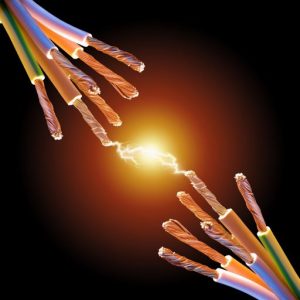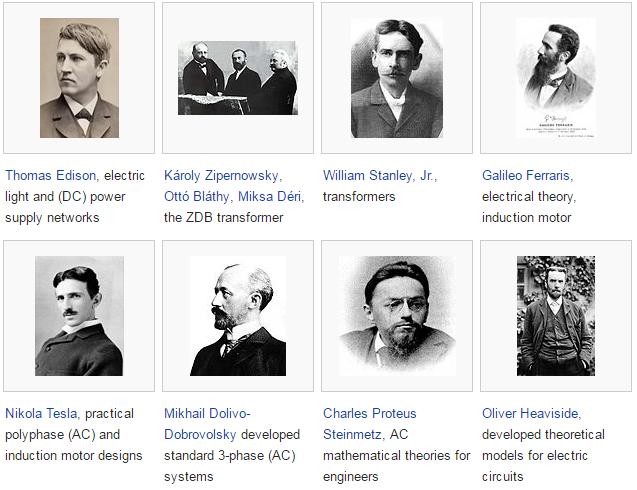Welcome to Electrical Engineering & Technology portal where you can find valuable literature and any relevant information for helping the electrical professionals. Our website is designed, structured and populated in a way that it is easy for you to find the specific and most relevant information about the electrical engineering field. We also look forward from our visitors to give useful comments and suggestions related to electrical and electronic engineering for improving the contents provided in our pages, posts and articles.
We are committed to provide authentic and proven electrical engineering technical content which is reviewed and approved by well experienced electrical engineers. Our website is equally distributed with the technical content which is developed for engineers, supervisors, technicians and of course engineering and technology students. Some of the areas which are covered in our technology portal include as below:
- Power Generation
- Power Distribution & Transmissions
- High Voltage Switch Gears & Boards
- Medium Voltage Switch Gears & Boards
- Low Voltage Switch Gears & Boards
- Electromegnetism
- Transformers
- Electric DC Motors
- Induction Motors
- Power Factor Correction
- Harmonic Filters
- Solar Energy
- Wind Energy
- Electronics & Control Engineering
- Testing & Commissioning of Electrical Systems
In addition to above mentioned field there is a long list which we have covered in our website and it is continuously expanding with new information and latest electrical engineering technology developments. As you are aware electrical engineering is now evolved & subdivided into a wide range of sub fields including electronics, digital computers, power engineering, telecommunications, control systems, radio-frequency engineering, signal processing, instrumentation, and microelectronics. The subject of electronic engineering is often treated as its own sub field but it intersects with all the other sub fields, including the power electronics of power engineering.
ELECTRICAL ENGINEERING AS A PROFESSION
Commonly electrical engineers are known through the acquisition of degree or diploma in electrical or electronic engineering. Practicing engineers mostly go through professional development programs that include professional certification and memberships of a professional bodies like Institute of Electrical and Electronics Engineers (IEEE) and the Institution of Engineering and Technology (professional society) (IET). If you are new to electrical industry we shall also help you develop your career in many ways including questions and answers to basic concepts and providing procedures and methods of different activities involving the projects or operations of the electrical systems.
Electrical engineers work in a very wide range of industries and the skills required are likewise variable. These range from basic circuit theory to the management skills required of a project manager. The tools and equipment that an individual electrical engineering student or electrical engineer may need are similarly variable, ranging from a simple voltmeter to a top end analyzer to sophisticated design and manufacturing software.
Also in the same electrical engineering field or industry the knowledge profile of electrical engineers EE’s varies depending upon the roles and responsibilities they are performing as an electrical engineer i.e. an engineer in construction industry design department will have much deeper knowledge than an electrical site engineer who mainly is responsible for installation of electrical systems irrespective of the design challenges and other technical requirements. Similarly engineers involved in maintenance of electrical systems like switch gear panels, transformers and power distribution substations shall be having different type of knowledge than a design electrical engineer.
HISTORY OF ELECTRICAL FIELD
Electricity has been a subject of scientific interest since at least the early 17th century. The first electrical engineer was probably William Gilbert who designed the versorium which was a device that detected the presence of statically charged objects. He was also the first to draw a clear distinction between magnetism and static electricity and is credited with establishing the term electricity. In 1775 Alessandro Volta’s scientific experimentation devised the electrophorus which was a device that produced a static electric charge, and by 1800 Volta developed the voltaic pile, a forerunner of the electric battery. However, it was not until the 19th century that research into the subject started to intensify. Notable developments in this century include the work of Georg Ohm, who in 1827 quantified the relationship between the electric current and potential difference in a conductor, Michael Faraday the discoverer of electromagnetic induction in 1831, and James Clerk Maxwell, who in 1873 published a unified theory of electricity and magnetism in his treatise Electricity and Magnetism.
In 1883 Darmstadt University of Technology and Cornell University introduced the world’s first courses of study in electrical engineering, and in 1885 the University College London founded the first chair of electrical engineering in the United Kingdom. The University of Missouri subsequently established the first department of electrical engineering in the United States in 1886.
In 1882, Edison switched on the world’s first large-scale electrical supply network that provided 110 volts direct current to fifty-nine customers in lower Manhattan. In 1887, Nikola Tesla filed a number of patents related to a competing form of power distribution known as alternating current. In the following years a bitter rivalry between Tesla and Edison, known as the “War of Currents“, took place over the preferred method of distribution. AC eventually replaced DC for generation and power distribution, enormously extending the range and improving the safety and efficiency of power distribution.

ELECTRICAL ENGINEERING SCOPE IN FUTURE
Employment of electrical and electronics engineers is projected to grow by 4 percent between now and 2022, because of these professionals’ “versatility in developing and applying emerging technologies,” the BLS says. This shows a strong outlook for the profession of electrical engineering jobs all over the world, electrical engineer salary all over the world is very reasonable and qualified electrical engineers enjoy successful carrier in all industries.
Discover more from Electrical Engineering 123
Subscribe to get the latest posts to your email.
